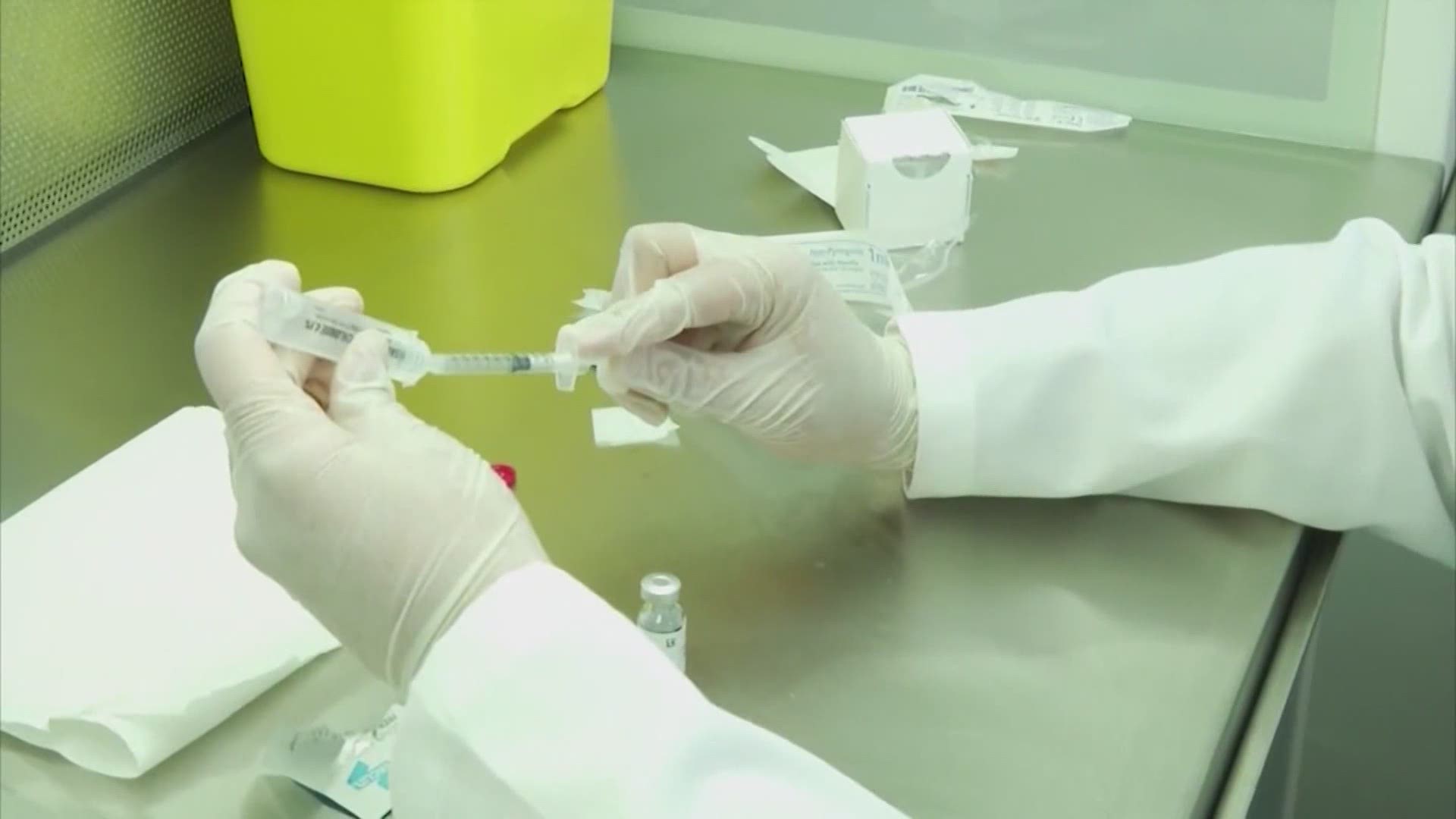HOUSTON — The Johnson & Johnson coronavirus vaccine distribution has been halted at federal sites across the United States due to a probe into reports of blood clots in women.
The reported blood clots are very rare but potentially dangerous.
But the Johnson & Johnson vaccine has not been recalled. U.S. Food & Drug Administration officials emphasized Tuesday’s action was not a mandate. In fact, doctors and patients can still use J&J’s vaccine if they decide its benefits outweigh its risks for individual cases, according to Dr. Peter Marks.
Also read: Blood clot symptoms: What to watch for
A CDC committee will meet Wednesday to discuss the cases, and the FDA has also launched an investigation into the cause of the clots and low platelet counts.
How long will the J&J vaccine pause last?
The recommended pause for J&J distribution at mass vaccination sites could just be a "matter of days," federal health officials said. Some of this time will be spent allowing health care providers to be better prepared if they see instances of blood clots show up.
“I’d like to stress these events appear to be extremely rare. However COVID-19 vaccine safety is a top priority,” acting FDA Commissioner Janet Woodcock said at a news conference Tuesday.
J&J said in a statement that it was aware of the reports of blood clots, but that no link to its vaccine had been established, the Associated Press reported.
J&J vaccine blood clot symptoms: What to know and what to watch for
- "Adverse events appear to be extremely rare and are being further evaluated to ensure vaccine safety," Texas health officials note
- Unusual clots in six women occurred 6 to 13 days after vaccination, the CDC says
- The clots occurred in veins that drain blood from the brain and occurred together with low platelets
- All six cases were in women between the ages of 18 and 48
- Symptoms: People who have received the Johnson & Johnson vaccine who develop severe headache, abdominal pain, leg pain or shortness of breath within three weeks after vaccination should contact their health care provider
- Treatment: U.S. health authorities cautioned doctors against using a typical clot treatment, the blood-thinner heparin. “In this setting, administration of heparin may be dangerous and alternative treatments need to be given,” the FDA and CDC said

